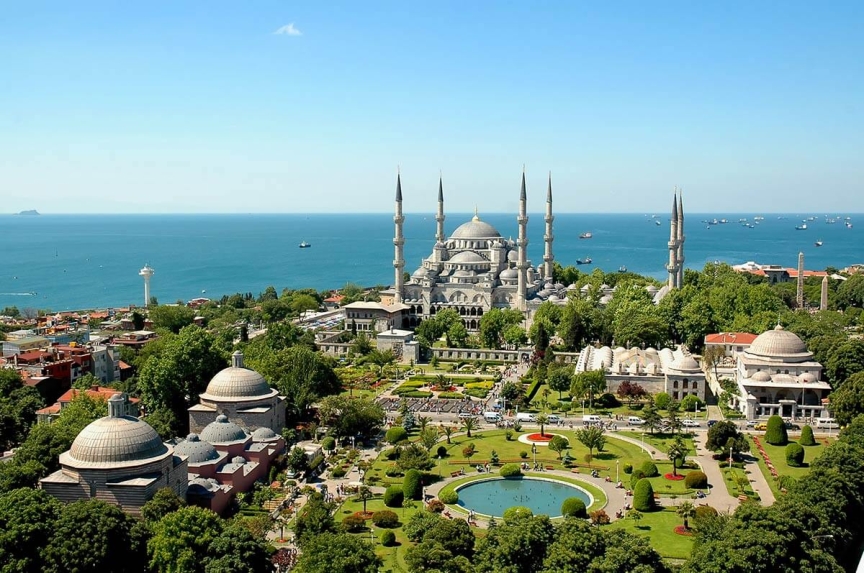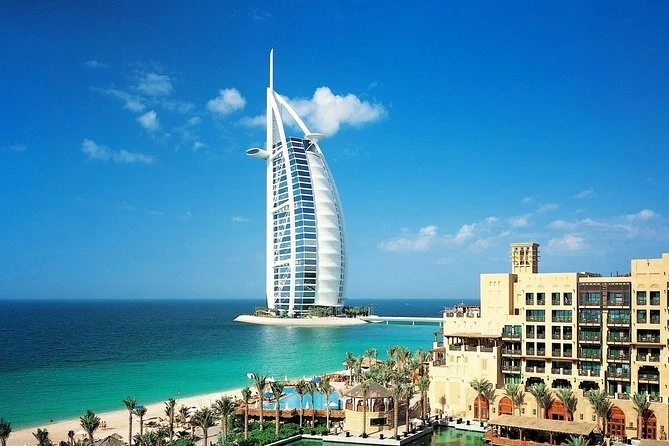Home / Blog / Travel & Geography
List of Middle East Countries and Their Capitals

The Middle East—often referred to as the "cradle of civilization"—is one of the most historically and geopolitically significant regions in the world. Spanning parts of Western Asia, North Africa, and Southeastern Europe, the region serves as a cultural, religious, and economic bridge between continents. Home to three major world religions—Islam, Christianity, and Judaism—the Middle East is rich in heritage, natural resources, and global influence.
The region is known for its strategic location, abundant oil reserves, and diverse cultures. From the ancient wonders of Egypt to the glittering skylines of the Gulf States, the Middle East presents a fascinating blend of tradition and modernity. Whether you're a student, a traveler, or a global affairs enthusiast, knowing the Middle East countries and their capitals helps you understand this dynamic part of the world.
In this article, we present a list of Middle Eastern countries and their capitals, along with a helpful FAQ section and closing insights. Let’s begin!
List of Middle East Countries and Their Capitals (Alphabetically)
Here is a numbered list of 17 widely recognized countries in the Middle East and their respective capital cities:
- Bahrain – Manama
- Cyprus – Nicosia
- Egypt – Cairo
- Iran – Tehran
- Iraq – Baghdad
- Israel – Jerusalem (international recognition varies)
- Jordan – Amman
- Kuwait – Kuwait City
- Lebanon – Beirut
- Oman – Muscat
- Palestine – East Jerusalem (claimed), Ramallah (administrative)
- Qatar – Doha
- Saudi Arabia – Riyadh
- Syria – Damascus
- Turkey – Ankara
- United Arab Emirates (UAE) – Abu Dhabi
- Yemen – Sana’a
1. How many countries are in the Middle East?
There are generally 17 recognized countries considered part of the Middle East, depending on geopolitical and cultural perspectives.
2. Is Egypt part of the Middle East or Africa?
Geographically, Egypt is in North Africa, but it is politically and culturally a Middle Eastern country.
3. What is the richest country in the Middle East?
Qatar often ranks as the richest based on GDP per capita, followed closely by UAE and Saudi Arabia.
4. Which country is the largest in the Middle East by area?
Saudi Arabia is the largest Middle Eastern country by land area.
5. Which Middle Eastern country has the largest population?
Iran has the largest population in the region, followed by Turkey and Egypt.
6. What is the most visited city in the Middle East?
Dubai (UAE) is the most visited city, known for luxury tourism and architecture.
7. Which Middle Eastern countries are considered democratic?
Israel, Turkey, Lebanon, and Cyprus are often cited as having democratic governance systems, though each varies in structure and freedom levels.
8. What languages are spoken in the Middle East?
Primarily Arabic, but also Persian (Farsi), Hebrew, Turkish, Kurdish, and Greek in specific regions.
9. What religions originated in the Middle East?
Islam, Christianity, and Judaism all originated in the Middle East.
10. Is Jerusalem the official capital of Israel?
Israel considers Jerusalem its capital. However, some countries and international organizations do not recognize it and maintain embassies in Tel Aviv.
The Middle East is a region of immense cultural, political, and economic importance. Its countries and capitals reflect a tapestry of civilizations that have shaped the modern world. Understanding this region isn’t just about geography—it’s about appreciating the depth of its history, the complexity of its politics, and the richness of its cultural identity.
Whether you’re brushing up for academic purposes, preparing for travel, or simply exploring the world through knowledge, this list offers a clear and insightful glimpse into one of the most vital regions on Earth.
Trending ↝
➤ How To Check If Company / Business Name Is Registered in Nigeria With CAC
➤ Pastor Jerry Eze Whatsapp Channel – Official Link, How to Join & What to Expect
➤ NECO Timetable 2025 (PDF Download) – Full SSCE Internal Exam Schedule
➤ NSPPD Live Today: Prayer Time, How to Join, Testimonies, Declarations, & Giving Information
➤ List of 36 States Governors in Nigeria, Their Deputies, and Political Parties (2025)
➤ How To Contact GOtv Customer Care in Nigeria
➤ How To Check Vehicle Number Plate Registration in Nigeria
➤ NELFUND Student Loan: Portal, Login, How to Apply, All You Need to Know
➤ How To Write An Informal Letter
➤ Local Government Areas (LGAs) in Lagos State: Full List & Details
➤ How to Check NIN Number Online Using Phone USSD Code *346#





